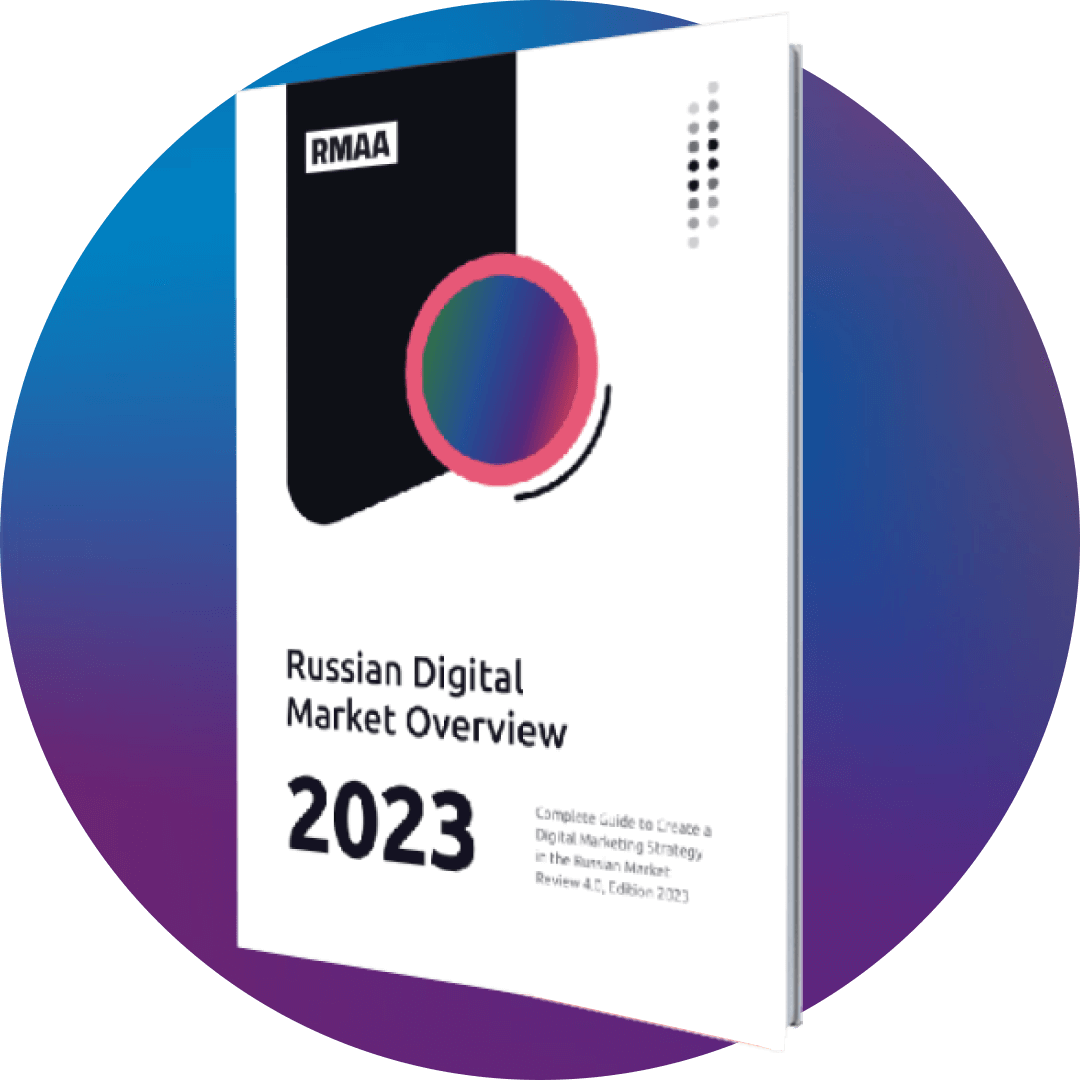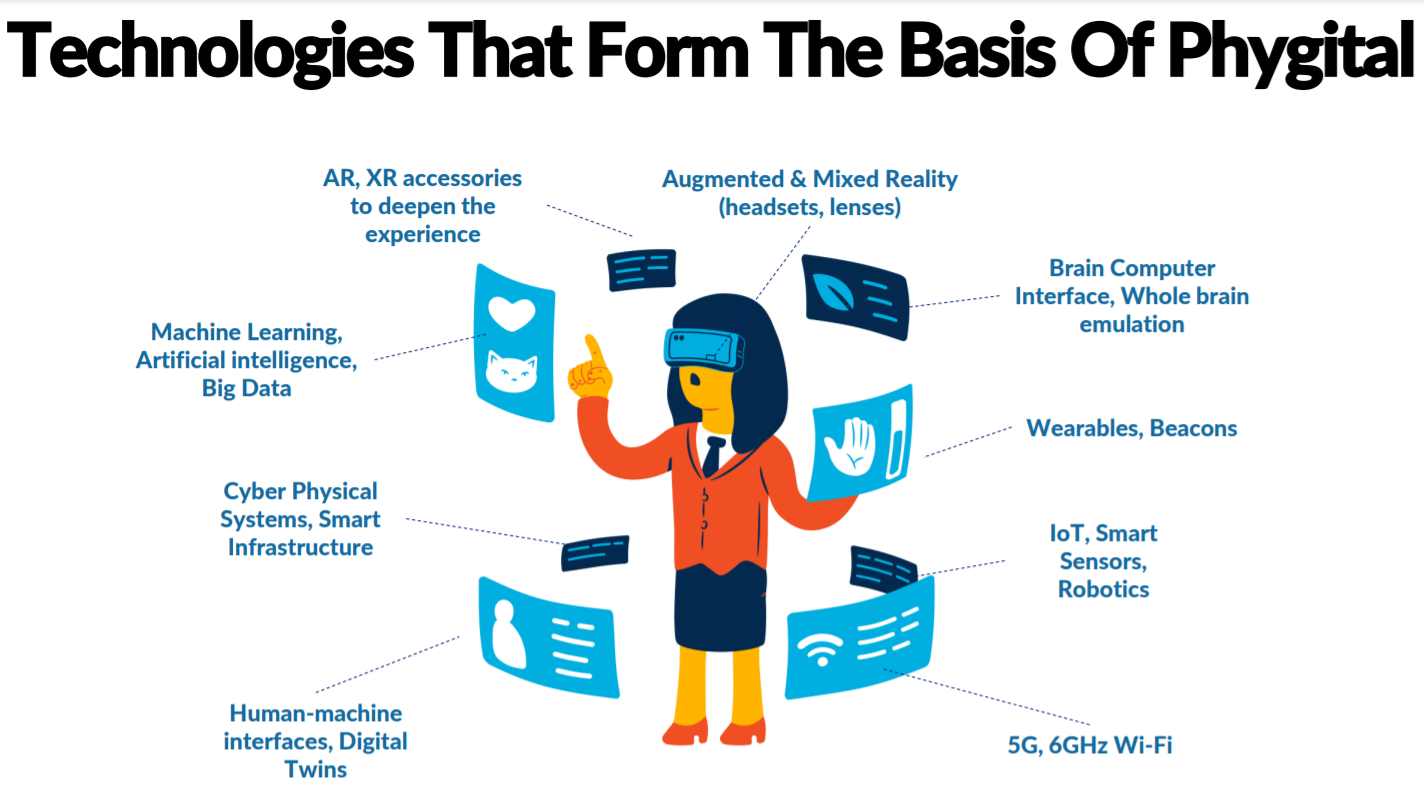Blog about successful marketing strategies in russia
5 Digital Marketing Trends in 2022


DIGITAL MARKETING
Share this Post
At the end of the year, RMAA Agency experts traditionally share trends for the upcoming year. In the article, you will find 5 most significant trends in the global and Russian advertising markets that will be impossible to disregard when planning marketing activities in 2022.
Trend 1. Making an alternative to cookies
On June 24, 2021, Google declared a delay of their plans to phase out third-party cookies for almost two years, until the end of 2023. The company's members explained that that they want to give the market more time for preparation for the things to come so that publishers and advertisers were not deprived of their earning power.
Google is going to use several new methods to collect data for ads:
- Making groups of users with common interests. This will let advertisers focus on the target audience without knowing every single user.
- Local user-specific data storage.
- Creation of an anonymous profile with a user's interests in Google Chrome that will be used for demonstration of suitable ads.
In this regard, zero-party and first-party data take on greater and greater importance. To put it in a nutshell, zero-party data is data that a user shares with you on their own. You can get such data by means of surveys, gamification etc. For example, when a user visits a website, you can immediately ask them what exact service or product they want to find and, based on their answer, show the most relevant content on your website. In fact, this data is part of first-party data.
This is log-in data and user behavior patterns on the very websites that the user visited. When signing in, users provide their contact information and give their open consent for their use, including advertising purposes. These cookies are set on the client's side when a user links to a website from advertising campaigns, social media, and other channels.
Trend 2. New birth of contextual targeting
In the absence of third-party cookies, the revival of contextual targeting is possible. This tool balances ads against the content of a web page. Therefore, a user reading a text about stock exchange quotations will see relevant ads in it.
Context targeting ensures the user's absolute confidentiality because ads are targeted on the basis of the page content and not by user data.
Trend 3. Phygital technologies—innovation in the communication world
Augmented reality and other technologies make access to goods and services more interactive.
Phygital (physical + digital) is a marketing term describing a combination of digital and physical experience, including augmented and virtual reality, which changes the concept of products and provides users with new experience.
Social media and e-commerce that exist only digitally today will blend into physical objects not just like their supplement, but more like their inherent part. This process will have a significant impact on marketing in 2022.
While there used to be only single companies, for instance, virtual storefront cases of IKEA in 2017 and Benetton in 2012, this trend will become more widespread in 2022.
According to estimates of Devar and LETA Capital in their report “State of Phygital”, the basis of phygital will consist of the following for the next two years:
- Human-machine interfaces, digital twins;
- Cyber Physical systems, smart infrastructure;
- Machine learning, artificial intelligence, big data;
- AR, XR accessories to deepen the experience;
- Augmented and mixed reality (headsets, lenses);
- Brain computer interface, whole brain emulation;
- Wearables, beacons;
- Internet of things (IoT), smart sensors, robotics;
- 5G, 6GHz Wi-Fi.
Source: State of Phygital, 2021
Trend 4. Focus on inclusion
The world of social media where everyone can express their mind and be heard is gradually changing the advertising industry. Brands are shifting away from generic characters and products that do not cater to the interests and needs of all their consumers. Moreover, now the creation of inclusive products is a new leverage to increase brand loyalty.
Inclusive marketing is not the way to count against the minority representation quota. This is about establishment of real connections with clients and demonstration that you are on the same page. What matters most is to choose stories that will meet a response on the universal level. After all, everyone has experienced the sorrow of public dislike at least once. In 2022, brands will not be able to ignore this trend.
Trend 5. Hybrid events
During the lockdown, many events went digital: Mercedes-Benz Fashion Week Russia, IgroMir, and Comic Con, as well as professional conferences, business forums, and many other events already go online fully or partially.
Apart from standard tools to conduct online events live, out-of-the-box solutions are getting more and more popular in the market:
- Afterparty conferences in SpatialChat virtual space;
- VirBELA, an immersive tech platform for business meetings, entertainment, and education;
- AltSpace, a VR platform;
- In-game events, for example, a game conference of HSE University in Minecraft (in a virtual copy of its campus).
With this in mind, when planning offline events for 2022, it becomes a must to integrate digital technologies: live streaming, VR, AR and other IT solutions for virtual participation in any offline event.
Join 2,000+
of your Peers!
You will be the first to know about Russian marketing insights, news and updates from our agency. Stay tuned!
Get our latest articles delivered to your email inbox and get our exclusive White Paper
"Digital Marketing in Russia. Finding your customers on the internet"
for FREE!
Russian Digital Market Overview 2023
More about effective digital marketing strategies in the Russian market

Ready to partner with the specialists in Russian marketing and advertising?
About the Author
Head of Digital, editor-in-chief of the RMAA Agency Blog
Join 2,000+ of your Peers!
Get our latest articles delivered to your email inbox and get our exclusive White Paper "Digital Marketing in Russia. Finding your customers on the internet" for FREE!
You will be the first to know about Russian marketing insights,
news and updates from our agency.
Stay tuned!
















